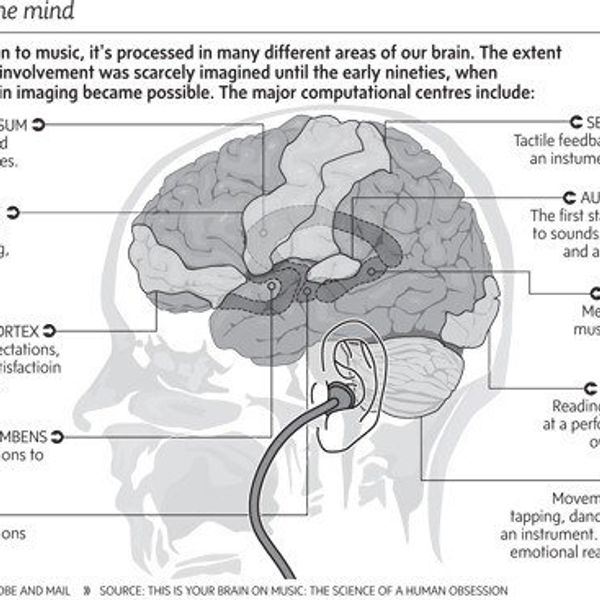Ever since I got my first iPod in middle school, I began listening to music on repeat for an embarrassingly long amount of time.
Over and over I would listen to Britney Spears and Flo Rida, and all the other songs that made me feel way cooler than I actually was. When I rode in the car, I wouldn’t get sick of my favorite songs on the radio until I had thoroughly immersed myself in them for months on end—then I would take a little break and rediscover them a few weeks or months later only to fall in love with them again.
I know I am not alone in this experience; people routinely listen to music on repeat, and often enjoy it more than music they haven’t heard before. In a a recent survey, 98-99 percent of the population has reported getting a song stuck in their head (so essentially everyone). Repetition is a fundamental feature of all musical compositions—according to the poetWilliam Carlos Williams, “It is a principle of music to repeat the theme. Repeat and repeat again as the pace mounts.” Repetition is found in essentially every piece of popular music, and seems to majorly heighten our listening experience. But why is this? What do we find so appealing in listening to the same chords in the same order over and over?
According to professor Elizabeth Margulis in a Mic.com article, author of On Repeat: How Music Plays the Mind, “Musical repetition gets us mentally imagining or singing through the bit we expect to come next,” which contributes to a sense of shared experience with the music itself. If we know exactly what comes next, we are able to participate with the rhythm and act as if we ourselves were singing it. The lines between ourselves and the song become blurred, and we enjoy that.
In addition, the music industry relies on a principle called the mere exposure effect, which states that people will enjoy things more if they’ve heard them over and over again. This is partly why new songs are played so often on the radio: so we are tricked into liking them simply because we can anticipate the beat. We often get the “catchy,” repetitive part of songs stuck in our heads, and we cannot help but mentally replay them and eventually truly like them.
So next time, don’t feel bad about playing that new song you love to death—your brain is just finding new ways to connect with the music and contributing to a sense of unity between you and the beat.





















